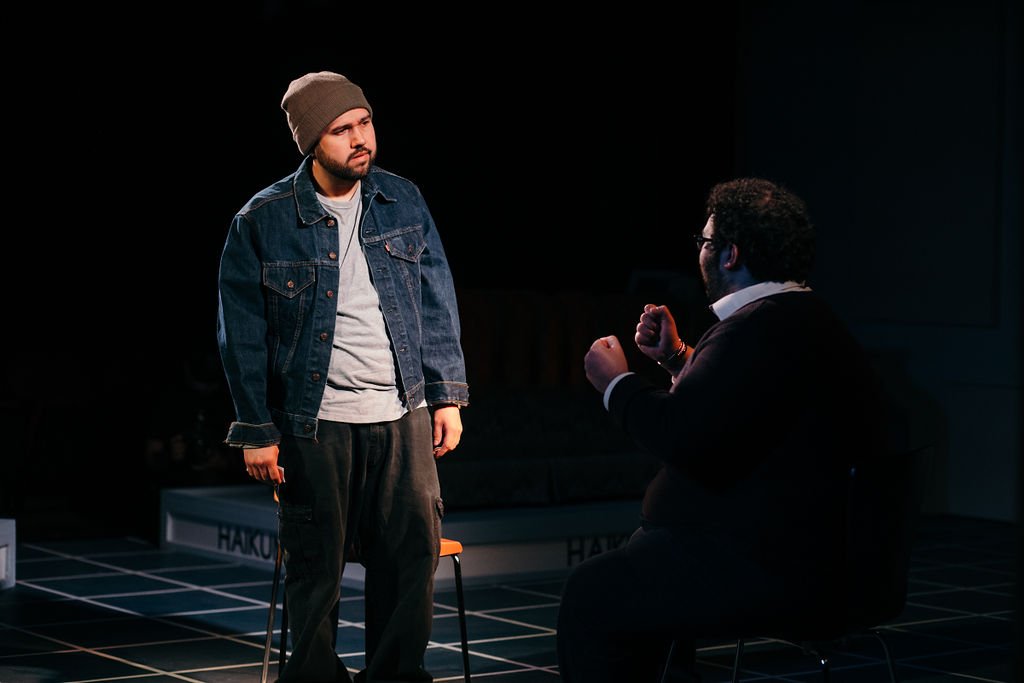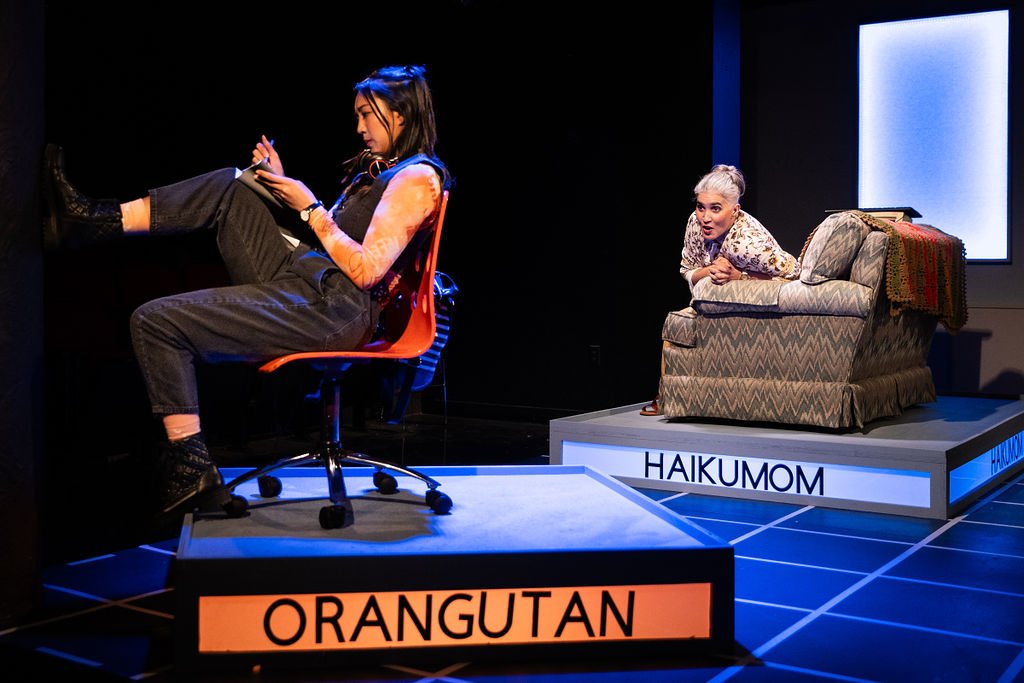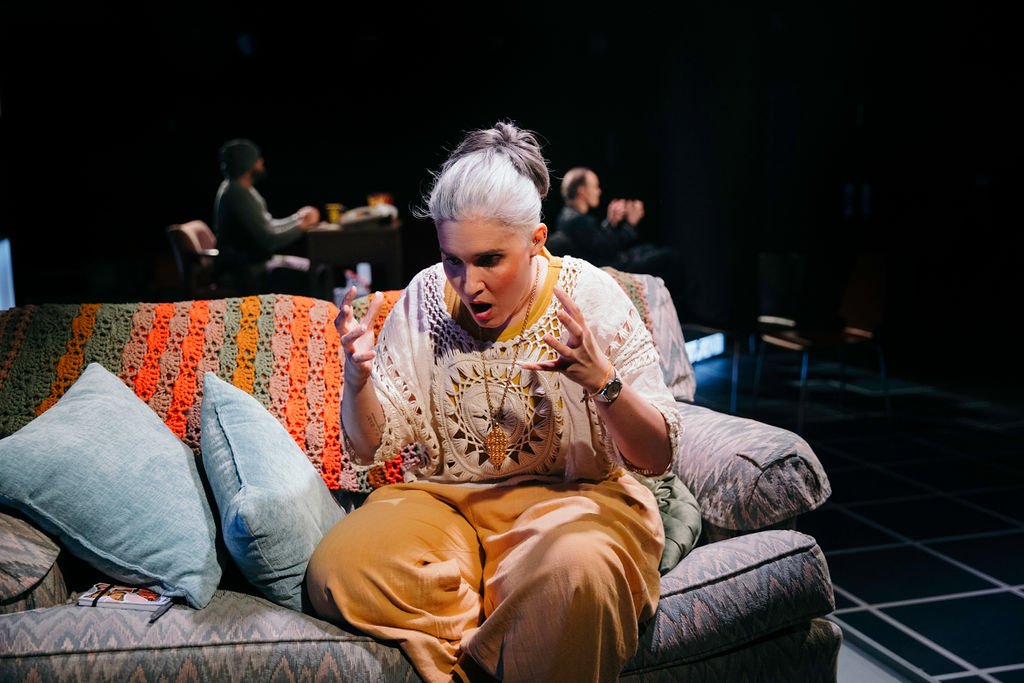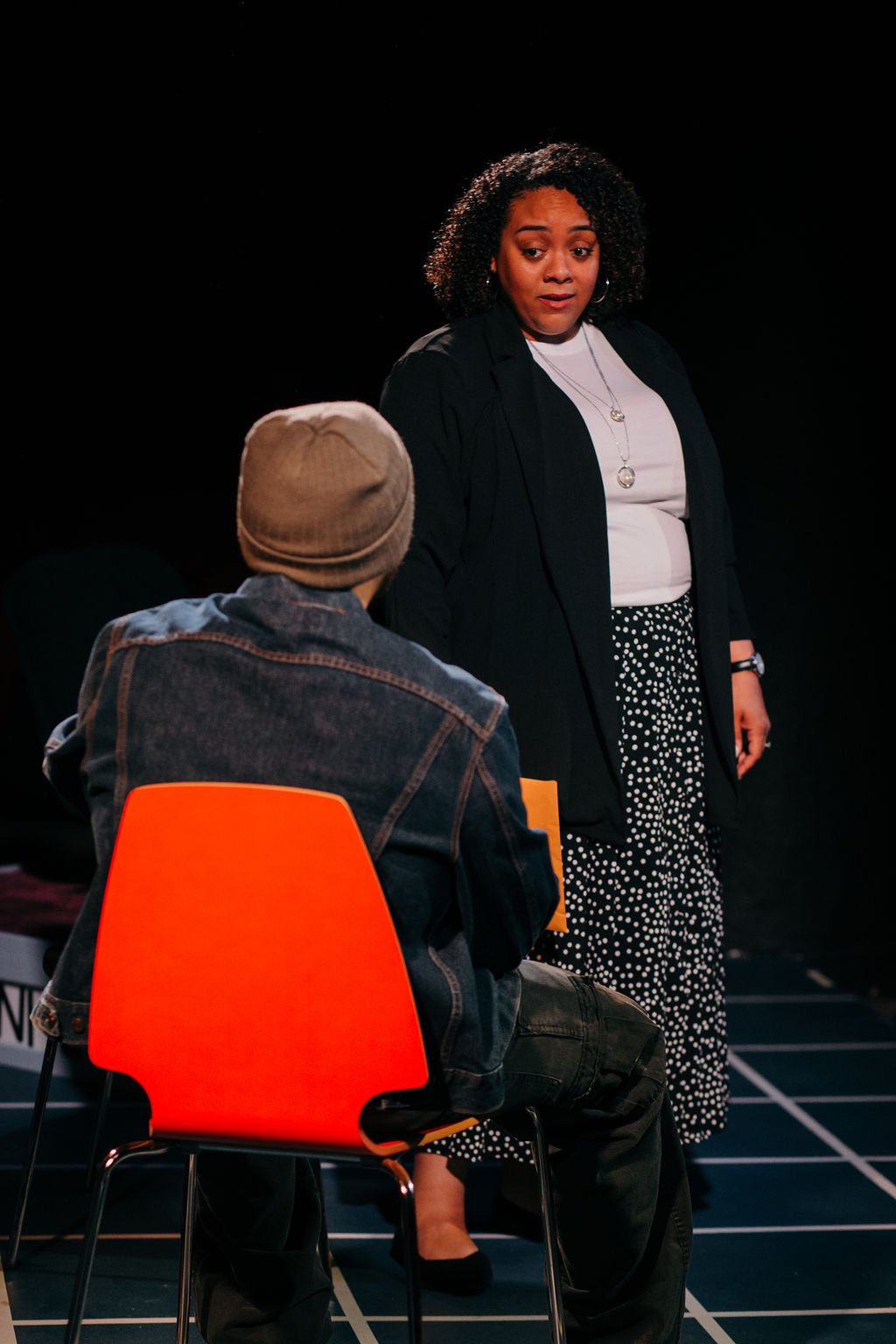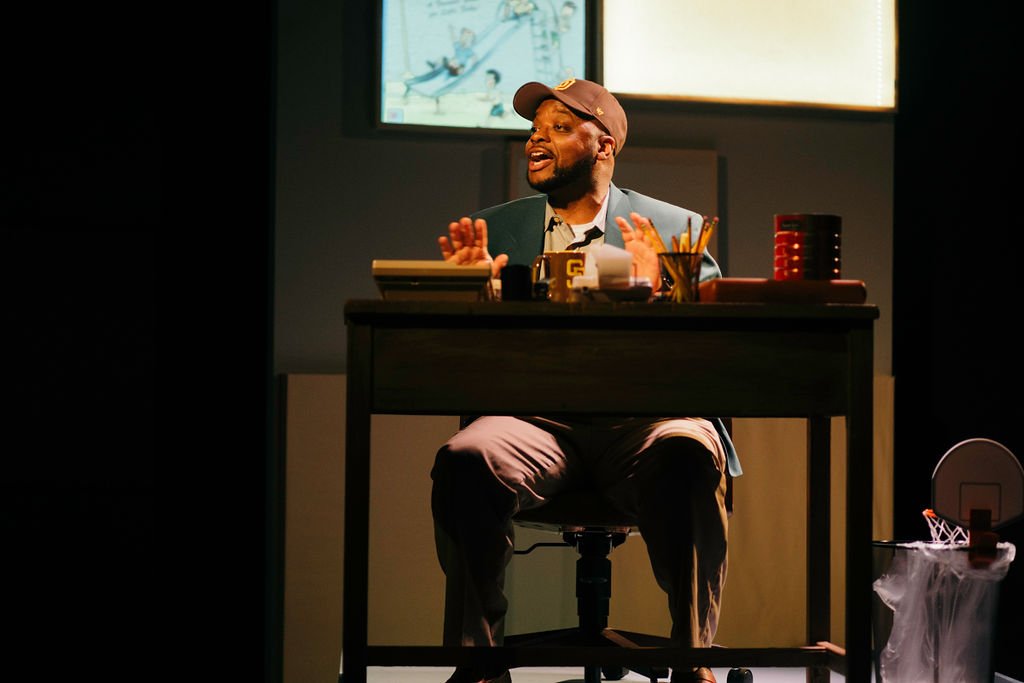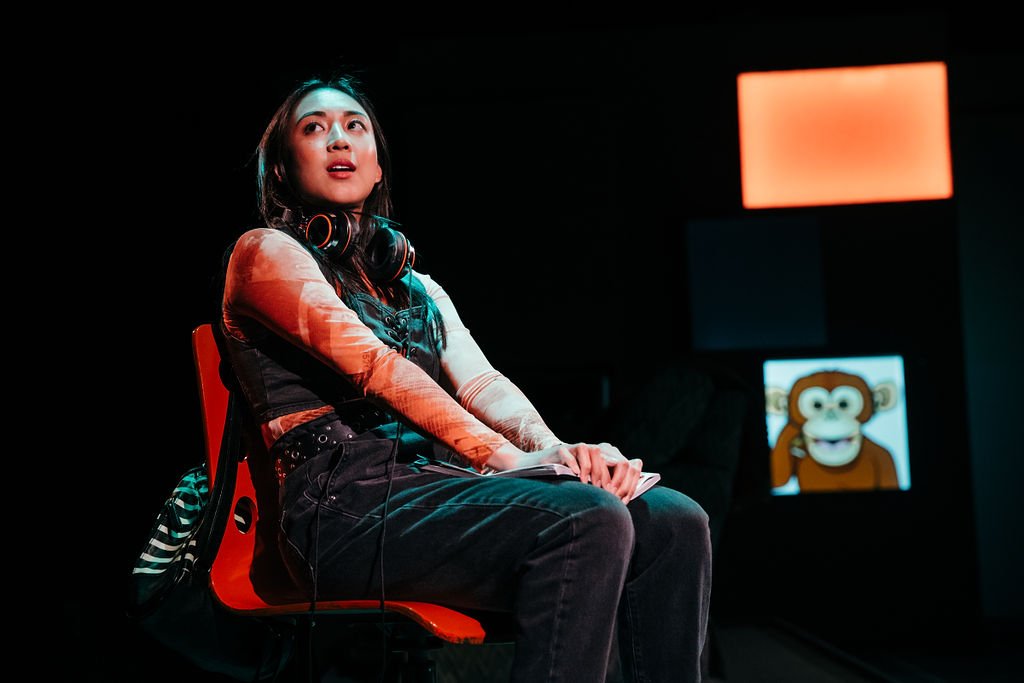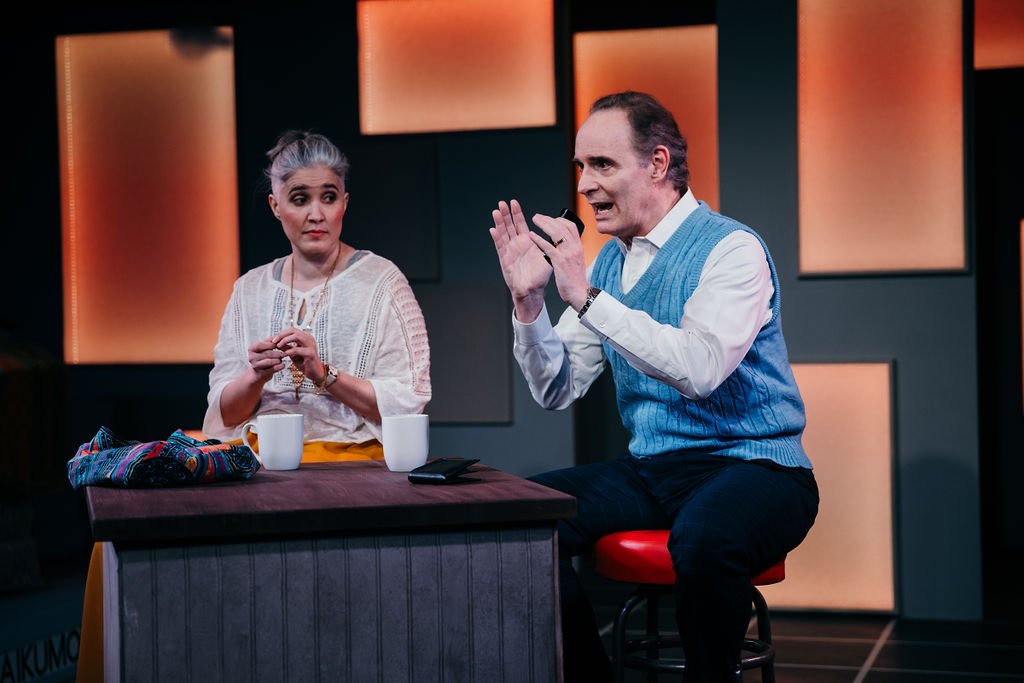‘Water By the Spoonful’ @ Circle Theatre
Photos by TayStan Photography
—Jan Farrington
Professor Aman: “What’s your native tongue?” Elliot: “Spanglish.”
Yaz: “Ginny grabbed the torch….We had somewhere to go. A kitchen that connected us. Plastic-covered sofas where we could park our communal asses.”
John: “We all have skeletons.” Elliot: “Yeah, well, she’s an archaeological dig.”
Circle Theatre’s regional premiere of Quiara Alegría Hudes’ Water By the Spoonful comes at us with sharp, rat-a-tat humor (and the right cast to sell it). It’s a story full of dark memories and ongoing struggle—but lifted and brightened by Hudes’ skill at mixing laughs in with the hurt and pain. To be honest—and Water is honest—that’s the mix of life for most of us, yes?
The title (though we don’t understand until well into the show) tells us this is a play about people who need, and people who care (and those who do both), whether in “the land of the living” crowded by family and friends (and demons), or in virtual space, where one battered woman creates a “living, breathing ecosystem” for drug addicts trying to salvage their lives.
The play’s multi-thread plot follows a group of characters whose stories take their time about revealing all the ways these folks are, or might be, connected. It’s the second play of a trilogy that begins with Elliot, a Soldier’s Fugue (2006), and ends with The Happiest Song Plays Last (2015). Water By the Spoonful, literally the center piece, won Hudes the Pulitzer Prize for Drama in 2012.
[Some editorial notes: Just before Elliot, Hudes made a splash writing the book (script) for Lin-Manuel Miranda’s 2005 In the Heights. WaterTower Theatre had a 2018 hit with Elliot, a Soldier’s Fugue, and I hope some North Texas company will complete the set by producing The Happiest Song…soon, please.]
Director Alexandra Hernandez keeps a steady, balancing hand on the emotional through-lines of the story; it’s a good trick to keep comedy and drama unfolding naturally, and she and the cast make sure things stay real. Hudes’ funny, honest dialogue helps—it’s so honest, in fact, that the admin of the drug addiction website (herself a central character) feels the need to censor every other message from her straight-talking followers.
Kevin Brown’s set design (with help from Syd Barker’s painting, Aaron Johansen’s lights, and Philip A. Vilar’s projections) organizes the action with labeled platform spaces for each “online” character, leaving a central space for real-world events here, there, and everywhere. Christina Vargas’ just-right costumes help us see each character more clearly without making much fuss about it.
Eric Garcia is Iraq war veteran Elliot Ortiz, back home for a while now, but still trying to survive the wounds to his body and spirit. Tamika Sanders is cousin Yazmin, professor at an East Coast almost-Ivy; she’s the barrio kid who made good, with some survivor’s guilt to work through. Caroline Rivera is Odessa, sister of the Mama Ginny (not a “seen” character in this play) who raised Elliot. Odessa is also “Haikumom”—the fierce admin of a website for crack addicts working to break free of the drug.
The addicts, recovering or not, live in the U.S. and around the world. They include Chutes&Ladders (J.R. Bradford), a fifty-ish IRS “paper pusher” who answers a help line in California; Orangutan (Thi Le), a Japanese-born adoptee raised by white American parents in the Midwest; and Fountainhead (Paul D. Taylor), a rich guy who has a “psychological” problem with drugs—not a real addiction, you know. “A purebred poodle,” the others think, plus he named himself after an Ayn Rand novel, ‘nough said. (Lucila Rojas and Rudy Lopez are the swings for this production.)
Elliot and the Ortiz family are our main focus, but these well-crafted side characters keep us amused, sad, hoping, surprised—and caught up in the twisting story, which has plenty of PTSD to spread around. Garcia, Sanders and Rivera are each differently compelling as Elliot, Yaz and Odessa. Andrew Nicolas does a fine job with several small-but-pivotal roles. And though Bradford and Le make an unexpected pair, they natter on so bluntly with each other we begin to wonder what’s brewing.
And for more “spoonfuls” of plot, you’ll need to see the play.
Hudes creates interesting characters, has a real feel for the energy of American conversation, and says a lot without getting preachy. Again, won’t somebody do that third play of her trilogy—please?
WHEN: March 21-April 13, 2024
WHERE: 230 West Fourth Street, Fort Worth
WEB: circletheatre.com

